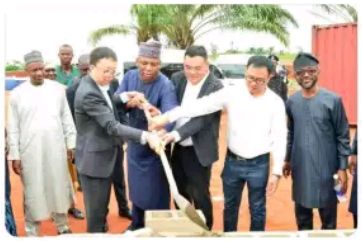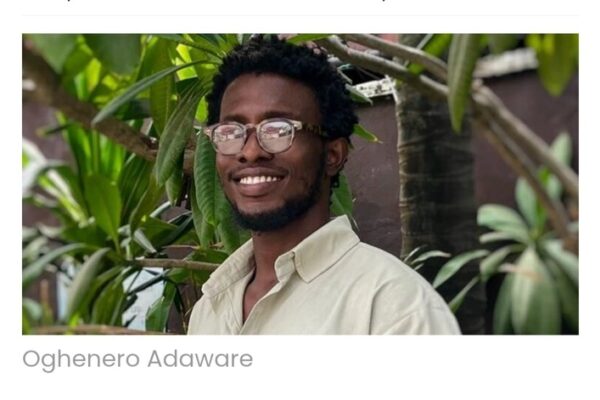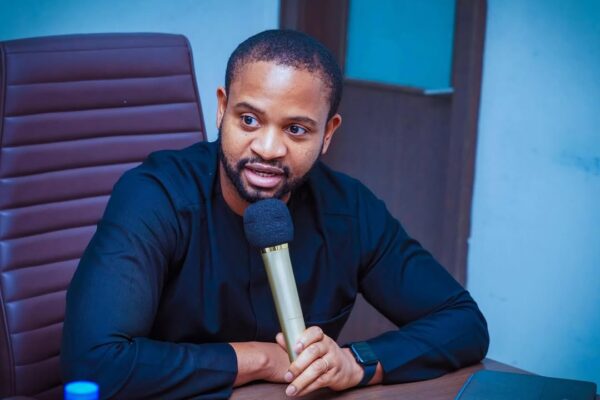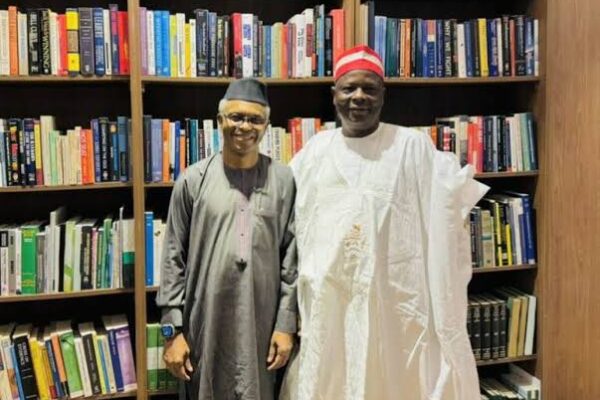
Minister Performs Ground Breaking Ceremony For $400m Steel Plant In Ogun
Minister of Steel Development, Prince Shuaibu Abubakar Audu has performed the official groundbreaking ceremony of the Inner Galaxy Group’s Stellar Steel Plant, a $400 million investment in Ogun State. This was disclosed in a statement released on Thursday by the Ministry’s Principal Information Officer, Ijomah E. Opia. The steel plant, which will sit on over 100 hectares of land once completed, is expected to produce hot-rolled coil, reducing Nigeria’s $4 billion annual steel import bill, strengthening the nation’s foreign-exchange position, growing and diversifying the economy away from oil & gas and also creating over 3,500 direct and indirect jobs for Nigerians. The groundbreaking ceremony of the Stellar Steel Plant follows the commissioning of the African Industries Group’s Galvanised Steel Plant with an estimated annual turnover of about $100 million. Both activities form part of the minister’s one-week official visit to Lagos and Ogun states to engage with private sector steel players. Performing the groundbreaking ceremony, Audu lauded the Inner Galaxy Group for their commitment to the steel industry revival efforts under the Renewed Hope Agenda of President Bola Tinubu, reiterating that the Federal Government is keen on encouraging private sector players as a means of growing the Nigerian economy. “As you are aware, this is one of the most robust cabinet teams that has been put together by any President since the advent of the democratic dispensation in the Fourth Republic in 1999 because President Tinubu is renowned for selecting the best hands and leaders to actualise his vision,” Audu said. The minister also expressed confidence in the capacity of the Inner Galaxy Group to deliver on its plans for the completion of the Stellar Steel Plant, as he expects to commission the completed plant by next April, 2026. He lauded the company’s track record in Nigeria, which includes building the largest lithium factory in Nasarawa State and a $150 million battery-recycling facility in Aba, Abia State. “I have personally come to support the Inner Galaxy Group and the Stellar Steel Team for this 400-million-dollar investment in the steel sector. It is a very impressive project, and I have come to perform the groundbreaking ceremony, as I look forward to coming for the commissioning once it is ready in April 2026, by God’s grace. “Under President Bola Ahmed Tinubu’s Renewed Hope Agenda, we are determined to build a $1 trillion economy by 2030. Steel is the backbone of industrialisation; from roads and power stations to defence hardware — they all need steel, and this particular project exemplifies the public–private partnership required to compete in Africa and globally. “We want to grow the Nigerian economy to one of the biggest economies in the world by 2030. China has done that excellently well over the last 30 years and is also renowned for speed of execution. “We, as leaders in Nigeria want to follow in those footsteps so that we can make our economy not just the biggest in Africa but one of the biggest in the world,” Audu said. Vice President of the Inner Galaxy Group, Mr Jackie Shan, who interpreted on behalf of its Chairman, Mr Li Chuang, who was also present, thanked the Ministry of Steel Development, under Audu’s leadership, for striving for the revitalisation of the steel sector in the country. In the same vein, the minister paid working visits to Proforce Defence Solutions in Ode Remo and Epail Nigeria Plant in Mowe, both in Ogun State. The visits are aligned with the Federal Government’s push for local production of military hardware and the proposed development of a military industrial complex within the Ajaokuta Steel Complex. Speaking at Proforce Nigeria Limited, the minister said that the President has also repeatedly stated the importance of having a military industrial complex to help improve the security situation in the country. According to him, having a military industrial complex in Ajaokuta with local capacity to produce military hardware is extremely critical. Mr Ayo Ogundeyin, Managing Director of Proforce, commended the minister for his dedication to reviving the steel sector and affirmed that with support from the Ministry, Nigeria could become Africa’s top defence manufacturing hub. At Epail Nigeria, the minister applauded the company’s use of advanced technology in defence production and reaffirmed the government’s readiness to collaborate in support of its operations. Dr. Kola Balogun, Chairman of Epail Nigeria, also called for stronger collaboration with the Ministry, highlighting the essential role of steel in defence production. He advocated for a licensing framework to support and regulate private military equipment manufacturers in the country.








